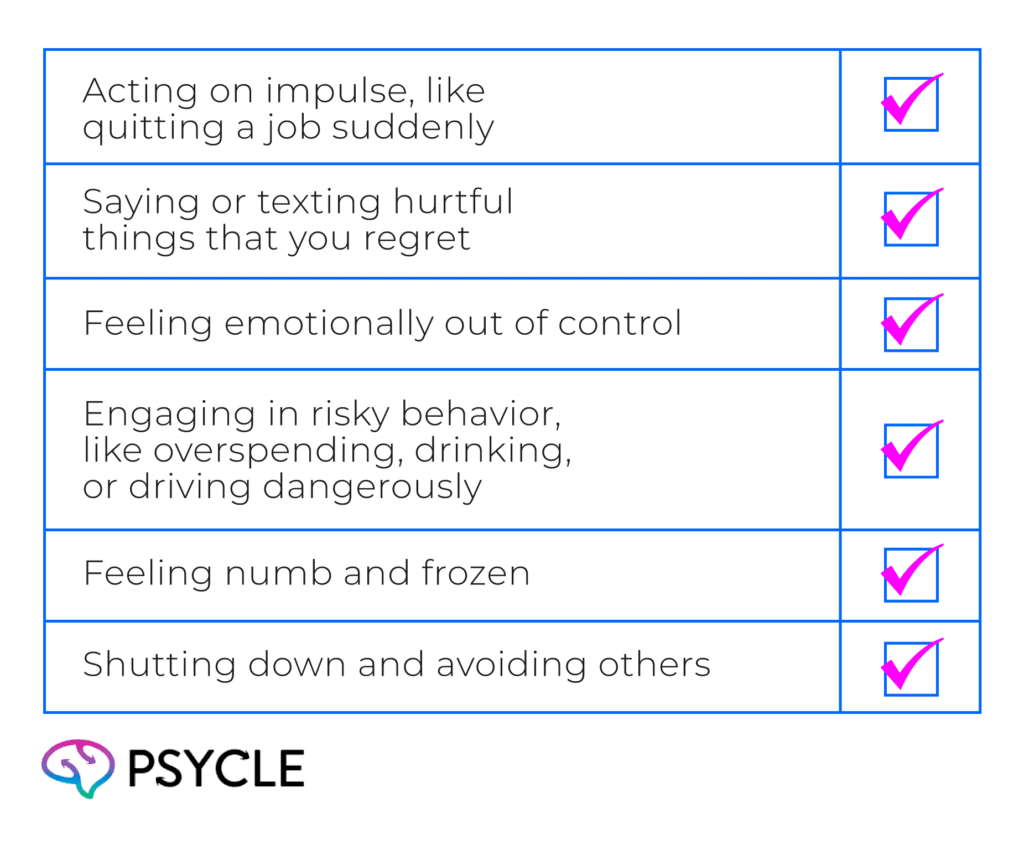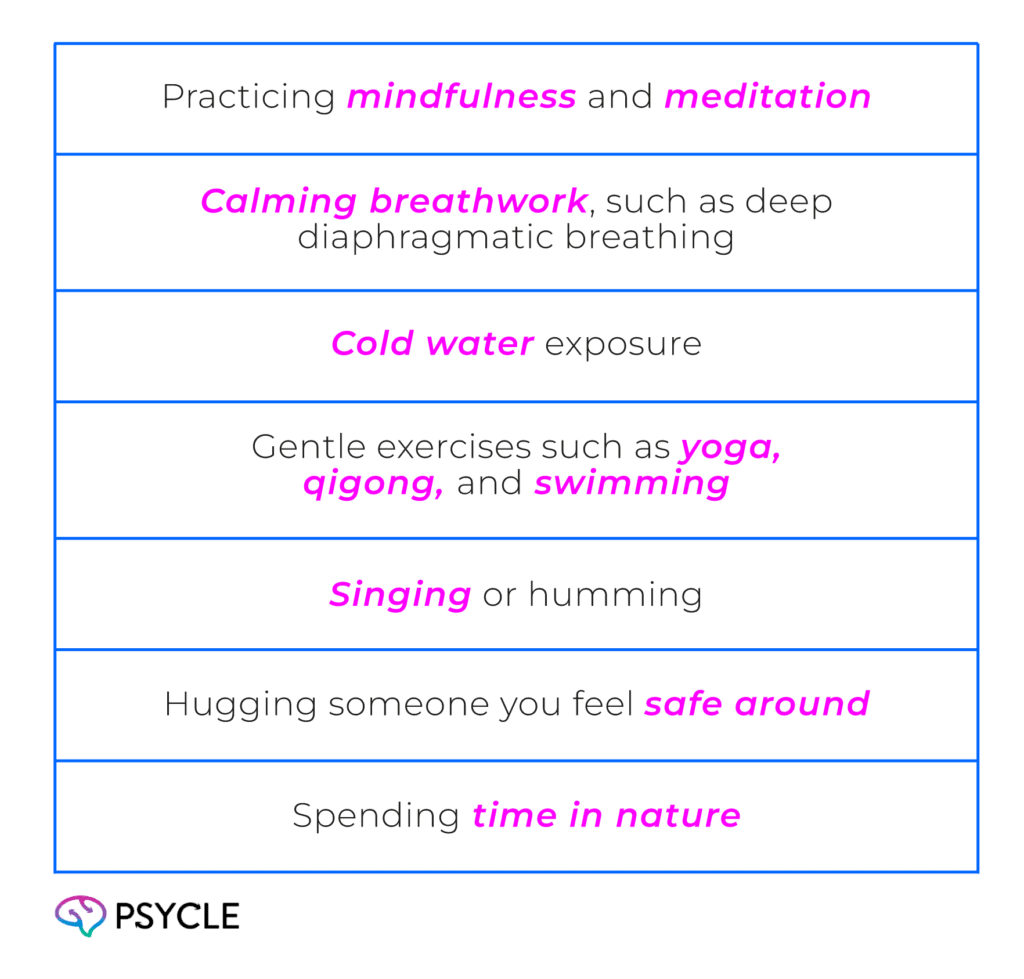Have you ever found yourself snapping out of nowhere? Quitting your job on impulse, breaking objects, sending a text you instantly regret, or lashing out at others? Crashing out happens when stress becomes too much and you can’t handle your own emotions.
This article will explain what it means to crash out, how to prevent it, and what to do if it happens.
Key Takeaways
- Crashing out means hitting a sudden emotional or mental wall.
- It often follows stress, trauma, or emotional overload.
- Signs include impulsive actions, emotional shutdown, and risky behavior.
- Crashing out happens quickly, while burnout builds slowly.
- You can prevent it with stress awareness, healthy habits, and support.
- After a crash, focus on safety, rest, and reaching out for help.
What is Crashing Out?
Crashing out means reaching a breaking point. It’s when you become overwhelmed and suddenly react with intense anger or distress. You don’t think about your actions, which can mean doing something risky or something you later regret.
While people have likely been “losing it” for as long as humans have existed, the term “crashing out” is relatively new. It’s been adopted by Gen Z and is gaining popularity as more people share their experiences on social media platforms like TikTok.
This rise in crashing out reflects the high pressure associated with modern society, especially among young people. Many people feel worried about global events and overwhelmed by nonstop stimulation.
At the same time, more people are speaking openly about their mental health and understanding how stress affects the nervous system over time.
Signs You’re Crashing Out
Crashing out shows up in different ways, but signs typically include:

What Causes People to Crash Out?
Crashing out is often caused by a buildup of stress. This can come from work, family problems, or life changes. Modern-day stresses, such as global instability, job shortages, and high living expenses, can also play a role.
Past trauma may increase the risk of crash-outs. Unprocessed emotions or painful memories can weaken your ability to cope, and when pressure builds, you may shut down or react suddenly.
Crashing Out vs. Burnout: What’s the Difference?
Burnout is also a state of emotional exhaustion caused by excessive stress. However, while burnout is a gradual loss of emotional and mental resources, crashing out is more sudden.
Burnout also tends to have longer-lasting effects than crashing out. These include:
- Constantly feeling tired, physically and emotionally
- Decreased motivation
- Feeling detached from friends, family, and work
- Difficulty concentrating
- Reduced self-confidence
Although they are different experiences, burnout can sometimes follow a crash, as the emotional intensity leaves people feeling drained and exhausted.
How to Prevent Crashing Out
You can reduce the chance of crashing out by paying attention to warning signs. These may include:
- Feeling irritated or angry
- Trouble sleeping
- Hypervigilance (increased alertness)
- Jumpy and racing thoughts
- Emotional numbness
Stress is the leading cause of crashing out, and so it’s imperative to do things that calm the nervous system, especially if you notice any of these warning signs. This could include things like:

You should also consider how to reduce stress in your life. You may choose to spend less time on your phone and take more breaks in the working day.
If you often feel overwhelmed by responsibilities, you may need to be firmer with your boundaries. When people ask you to take on tasks you don’t have the capacity for, whether it’s for work or friends, it’s okay to say no. You can always come up with alternative solutions or compromises.
Talk therapy can also support the prevention of crashing out. A therapist helps you build emotional tools. You can learn how to name your feelings, set boundaries, and handle triggers. Therapy also helps you work through past trauma so it doesn’t drive your behavior.
What to Do If You Crash Out
If you crash out, your immediate priority is safety. Try to move to a quiet, calm space. Take slow, steady breaths, sip some water, and reach out to someone you trust to let them know what’s going on.
Afterward, you might feel exhausted, emotional, or even ashamed, but try not to blame yourself. Crashing is often a sign that your stress levels have gone beyond what you can manage alone. Take time to reflect on what led up to it, and think about what changes or support might help prevent it from happening again.
When you’re ready, it’s important to acknowledge your actions, especially if they affected others. If someone was hurt, explain what happened and take responsibility. People who know you will likely understand that your intention wasn’t to cause harm. Still, it’s important to validate any impact your actions had and offer a sincere apology.
Sources
- https://eu.usatoday.com/story/news/nation/2024/11/07/crash-out-slang-social-media-trend-tiktok/76117046007/
- https://www.betterhelp.com/advice/general/crashing-out-meaning-understanding-mental-health-terminology-in-popular-culture/

